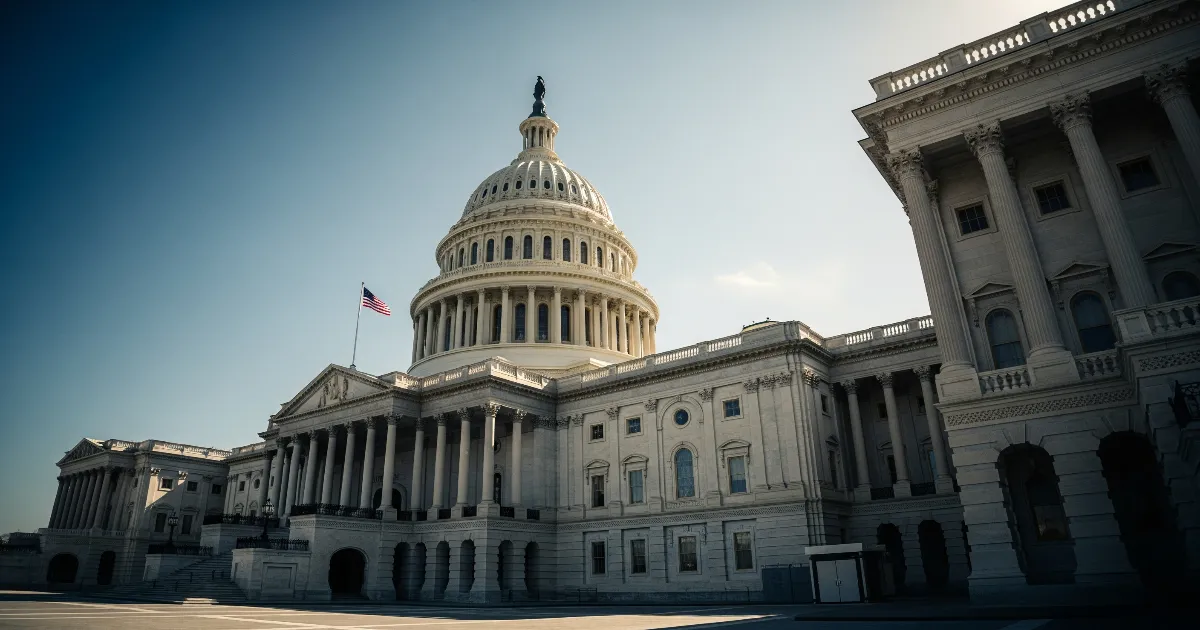By Zack Cohen, Bitcoin Policy Institute
Before I dive into the summary, I will say thank you. On behalf of the entire team at the Bitcoin Policy Institute, thanks to everyone who participated, supported, spoke, nominated or participated in any way. We spent months preparing for our third Bitcoin policy meeting. What was unfolded in Washington last week exceeded everything we might have expected.
More than 1,000 people joined us: builders, decision makers, students, agency staff, journalists, energy experts and human rights lawyers. And what they found was not a party dressed up as a conference, but a serious two-day work session that reflects how far the Bitcoin conversation has come-and where it goes.
Bitcoin has long been misunderstood or sideline in DC. It has been easy for decision makers to reject or ignore it. But the 2025 summit sent another signal: Bitcoin does not disappear. It’s not on the edge. It is at the center of new conversations about national strategy, financial strength, digital rights and innovation.
A welcome that set the tone
We opened the week with a packed welcome party that hosted our friends at Pubkey. For outsiders, DC may seem like a rigid city button, formal, slowly moving. But if you spend real time here, you know the truth: DC runs on relationship. And relationships are built in places like this.
Over 450 participants were gathered in a room buzzing with living karaoke, strong cocktails (shouting to Unchained to devise the old -fashioned bull and Miner’s Mule) and constant conversation. It was loud. It was happy. But most of all, it was serious energy. Bitcoiners had arrived.
Who was in the room
This year’s summit was brought in:
- 1,000+ gathered participants
- 300+ Public Policy Professionals
- 35 Congress Offices including 12 members of Congress
- 100+ federal government employees
- 50+ members of the press
- 49 universities
- 90,000+ livestream viewers
Participants included national security experts, financial regulators, think tank canalics, open source developers, nonprofit leaders and more. Bitcoin’s coalition is expanding and it showed.
What we were talking about
The program was structured around Clear Themes: National Security, Energy, Privacy, Financial Inclusion and Legislative Strategy. Keynotes, panels and lightning negotiations made room for both technical depth and wide vision.
In the opening segment, Zack Shapiro outlined BPI’s national strategy framework-a vision of US Bitcoin management, which is based on open source values, resilience and forward-looking policy. It was followed by a sharp panel of senate priorities, including the Bitcoin Act.
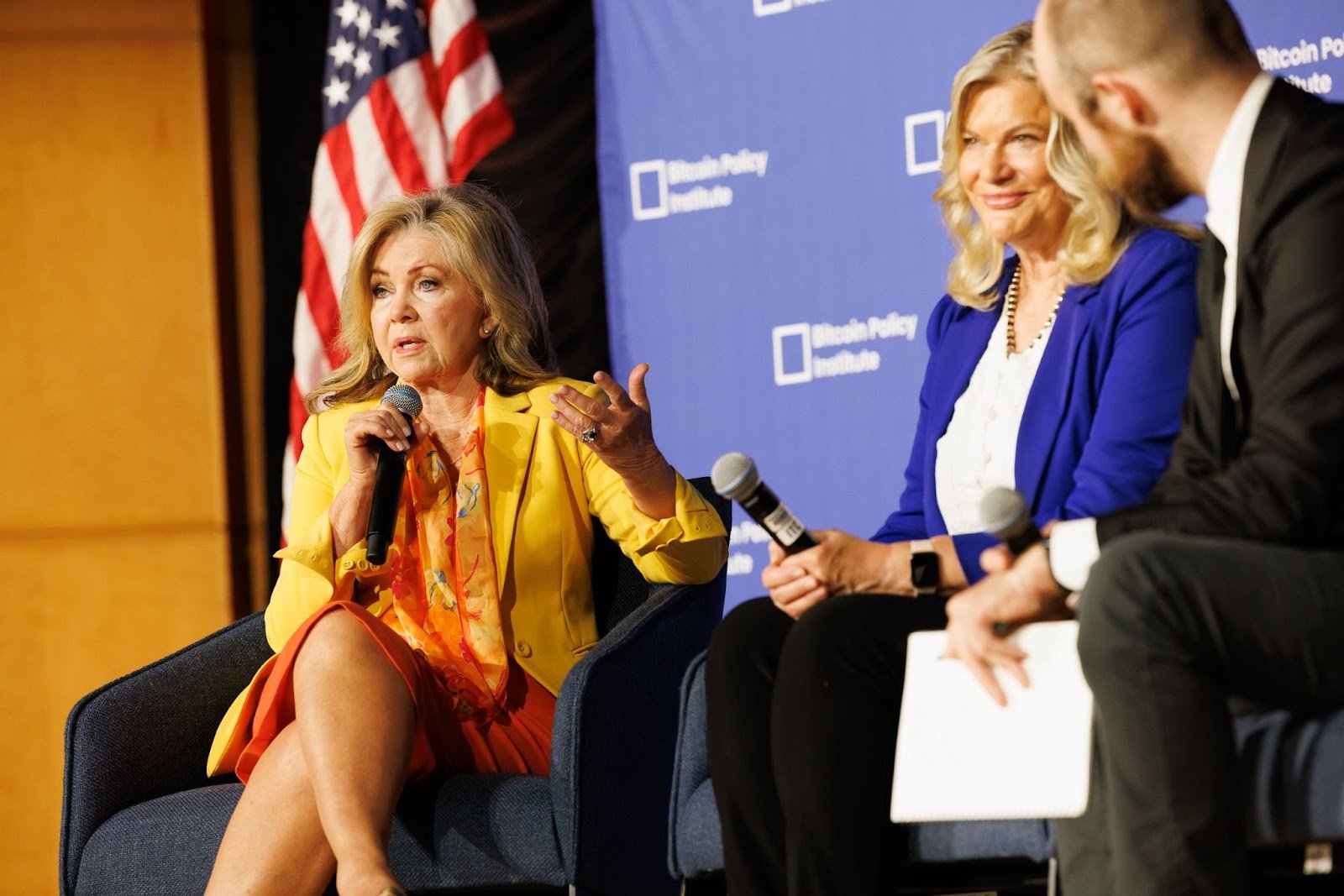
Alex Leishman gave a data-rich speech about the American Bitcoin advantage-why our institutions, capital markets and the rule of law placed the United States to lead. Alex Gladstein brought the human rights lines to life and reminded the space that Bitcoin is still the most powerful freedom technology of the 21st century.
Patrick Witt, Deputy CEO of the President’s Council for Digital Assets, repeated the administration’s strategic interest in Bitcoin and highlighted continuous progress:
“There will be the upcoming report on the interagency activities. We have already taken some steps with the question the question is now, how do we follow it with an accumulation plan? There is no lack of opportunities and work to be done. So after we leave here I will come back to it.”
Two Democrats, Rep. Ritchie Torres (D-NY) and rep. Josh Gottheimer (D-NJ), joined the Bitcoin Core’s 10. Famous Developer Matte Corallo and BPI-CO president Grant McCarty to discuss the need to make the blockchain regulatory security act Bipartisan.
At one point under the panel, Rep noted. Torres,
“The value of Bitcoin is safer than the value of gold because you can always find more gold, but the supply of bitcoin in the world remains firm in eternity.”
Rep. Gottheimer, who recently signed as a co -sponsor of the bill, joined Rep. Torres on stage to explain his decision to sponsor the bill and emphasize the importance of protecting innovators and maintaining the integrity of the open source development ecosystem.
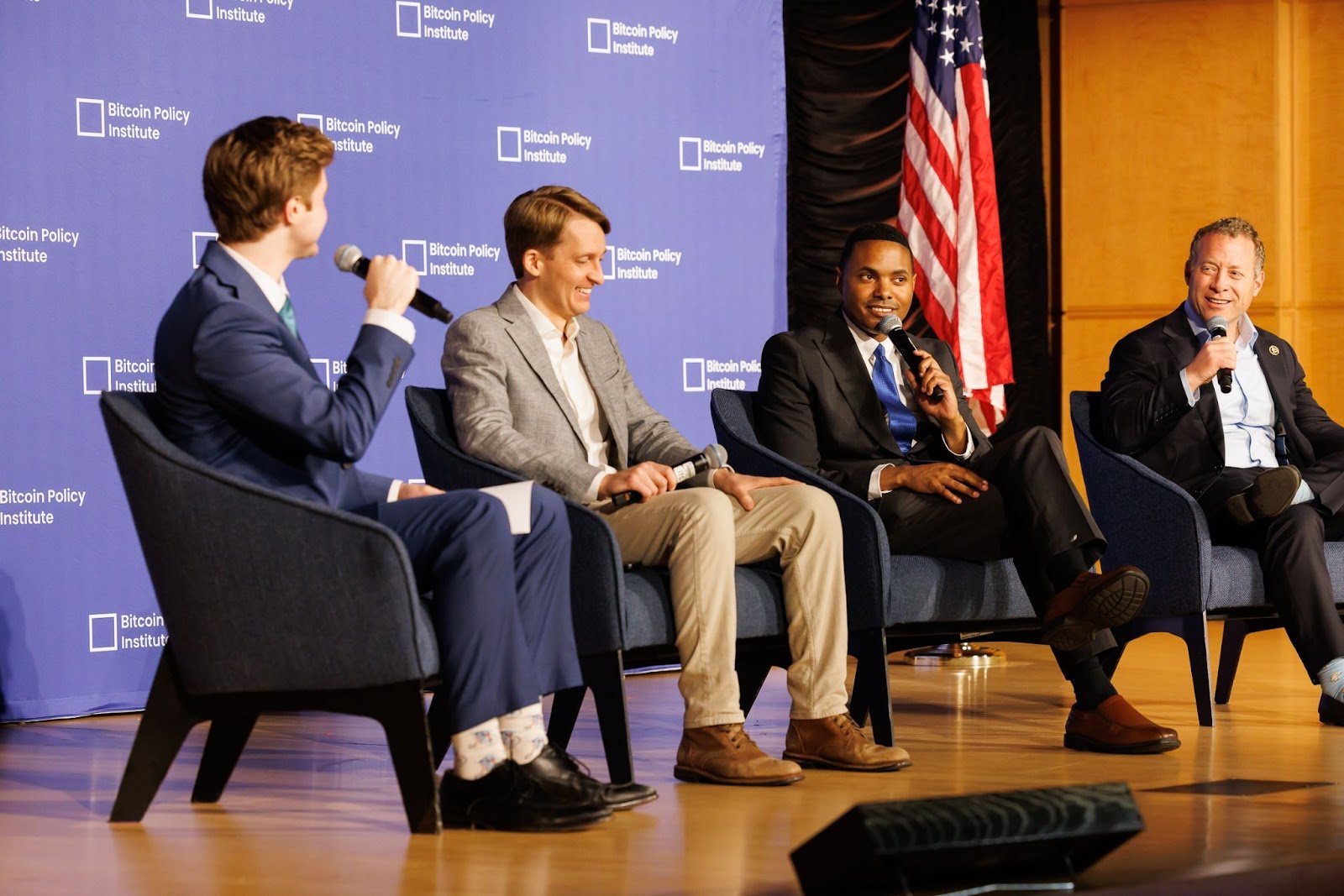
In one of the most high influences, BPI’s Zack Shapiro joined forces with SEC Commissioner Hester Peirce to discuss ETF structure, qualified custody and what the future of Bitcoin-native financial infrastructure may look. It was detailed, honest and material – exactly what this moment requires.
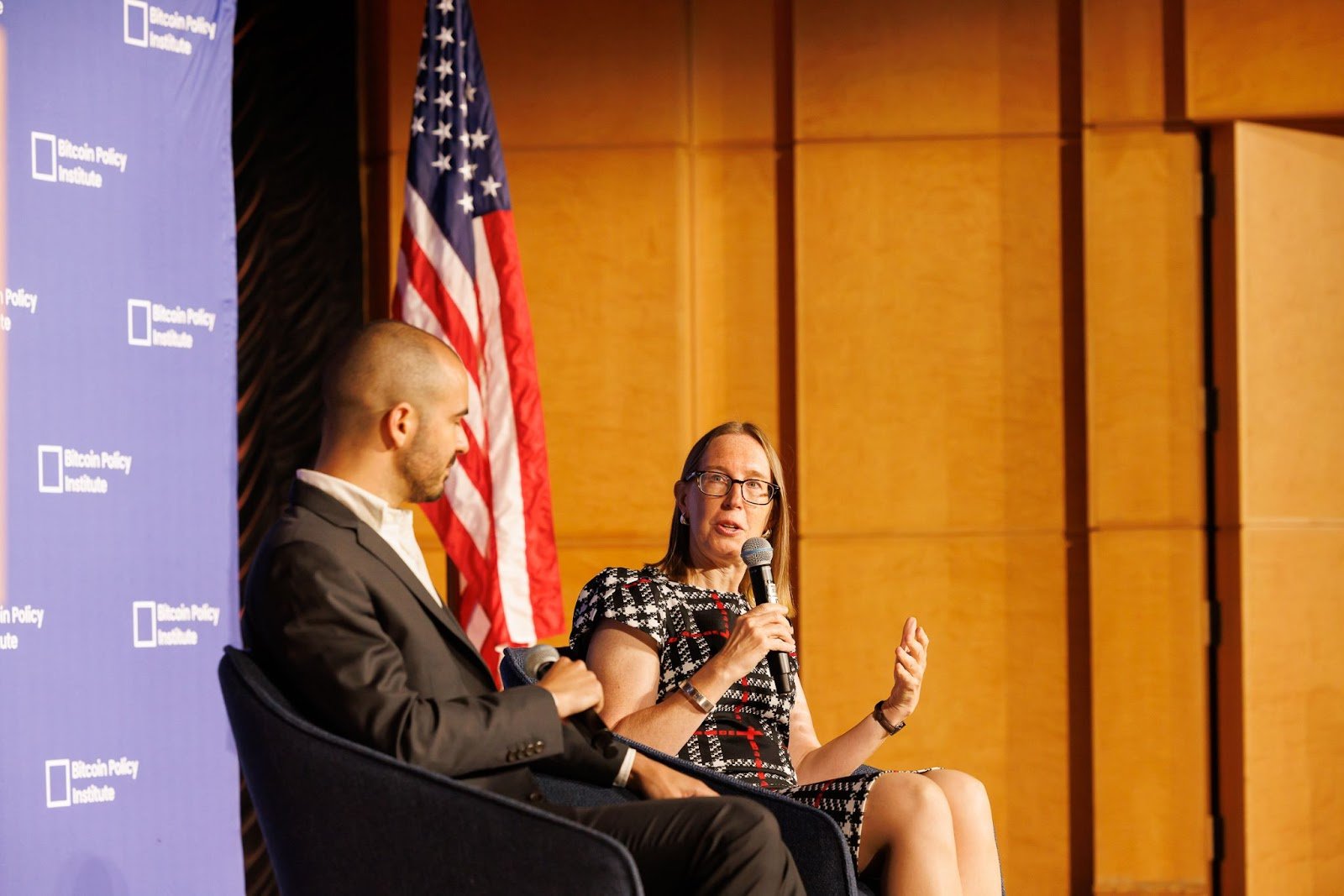
Office hours and the Q&A space
New this year we introduced structured office hours: one-on-one sessions where participants could sit down with our research fellows. These conversations dug into mining, privacy, regulation and monetary strategy in an unfiltered framework.
Questions and questions added another layer of depth. Cygnal CEO Brent Buchanan went through a recent vote of 800 probable midterm voters. The results were clear: Bitcoiners become a political constituency. Ignore them at your own risk.
Anna Chekhovich also led a basic Bitcoin 101 session for decision makers who broke down the basics of Bitcoin in ordinary language that was rooted in her global human rights work.
Bitcoin on the hill
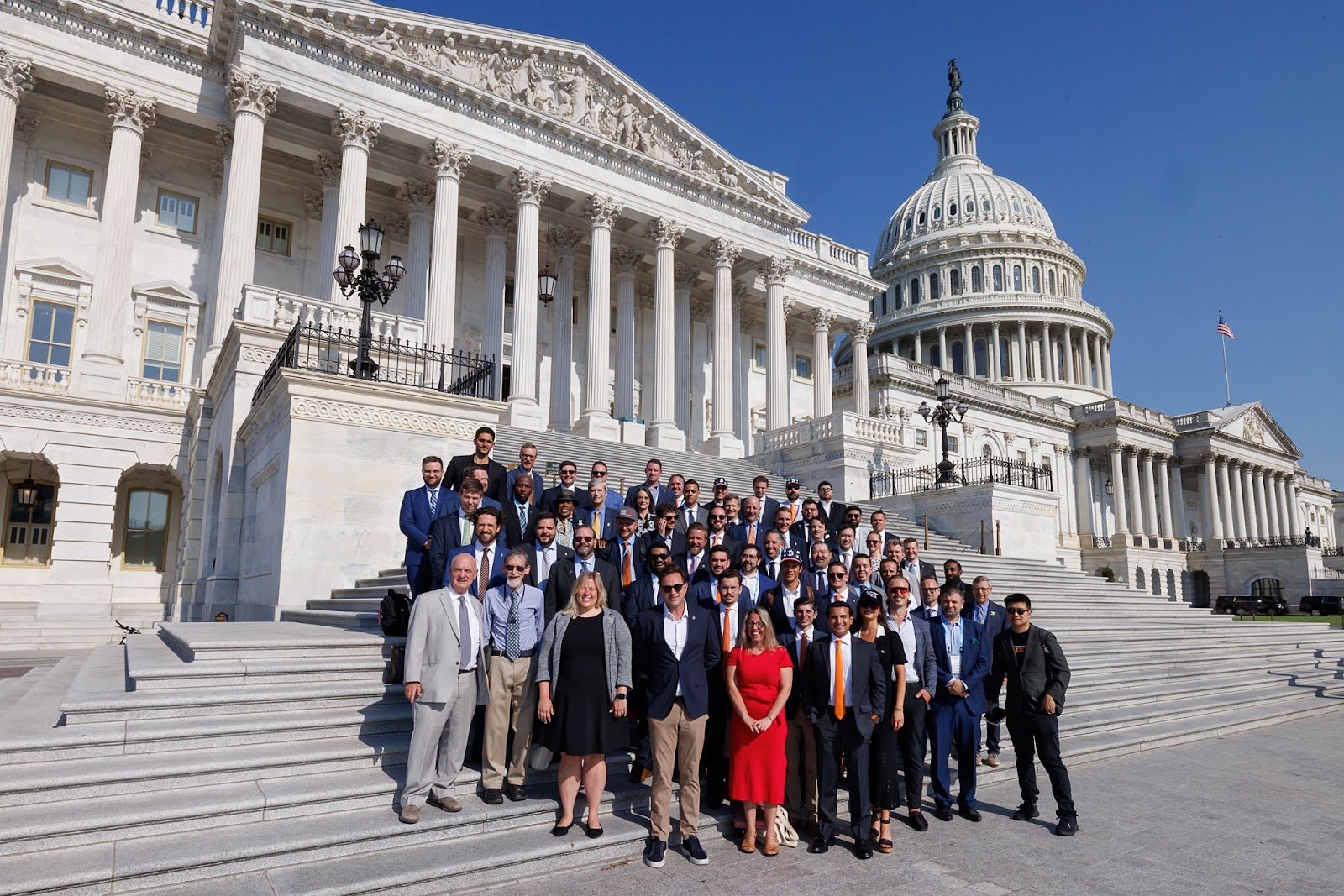
BPIs Day at the hill Marked the greatest coordinated effort to date for Bitcoin spokesmen who participate directly with legislators. Over 120 participants participated in 118 confirmed meetings with congregation offices:
- 48 Senate Offices
- 70 House Contactors
- Over 10 meetings at membership level
- Offices from 68 Democrats and 50 Republicans
- Representation from 28 states, DC and an American territory
This was not performative. It was strategic. For many in Congress, this was the first real conversations they had had with serious, mission-driven Bitcoin spokesmen.
Reflections
What stood out this year was the tone. Bitcoiners came dressed in suits. Not like a costume, but as a signal. We got to engage seriously. The tension in the room was not hype – it was grounded in focus, preparation and a common sense that this moment was important.
And DC answered. Politicians and staff were not just open, they were engaged. They asked good questions. They listened. The distance between Bitcoin and Washington shrinks quickly.
Personally, the most striking realization was that Gen Z had appeared in effect. It wasn’t just the number of young people in space – it was their presence. They were committed, sharp, curious and really happy to be part of the conversation. I’ve been to more conferences than I can count, and it was the first time it felt like my friends didn’t look at the sidelines. They were in it – to ask questions, run dialogue, shape the future. And best of all, we’re just getting started.
This is only the beginning
The Bitcoin Policy Institute is uniquely located to host a summit that responds to none than its mission. Bitcoin does not ask for special treatment. It does not lobby for distributions. It makes a case of benefits, for why it matters to American sovereignty, innovation and financial freedom.
This case became equally more difficult to ignore.
See you next year.
This is a guest post of Zach Cohen. Opinions that are expressed are entirely their own and do not necessarily reflect those from BTC Inc or Bitcoin magazine.
